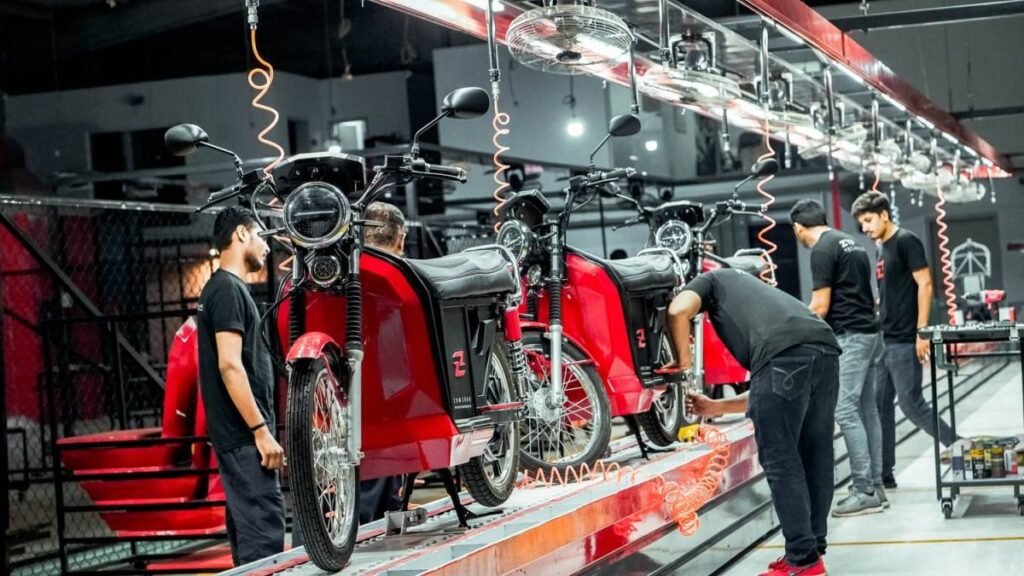Electric Vehicle Manufacturing
ISLAMABAD: The Engineering Development Board (EDB) has taken a significant step towards promoting electric vehicle (EV) manufacturing in Pakistan by issuing 34 licenses to manufacturers of two- and three-wheelers under the Electric Vehicles Policy for 2020-2025.
This move aligns with the global trend of transitioning from traditional fuel-powered automobiles to EVs in order to reduce carbon emissions and promote sustainable transportation solutions.
During a webinar titled “Pakistan’s electric vehicle market: challenges, opportunities, and the 2030 agenda” hosted by the Sustainable Development Policy Institute (SDPI), Asim Ayaz, a senior EDB official, highlighted the growing involvement of private partners in EV manufacturing.
However, he also pointed out the pressing issue of financing for customers, as EVs tend to be more expensive than traditional fuel-based vehicles due to the high cost of batteries.
To address this challenge, the ministry has proposed the establishment of EV charging stations at every petrol station, facilitating the adoption of EVs by providing convenient access to charging infrastructure.
Mr. Ayaz emphasized the importance of collaboration with academic institutions and industry partners, such as the Lahore University of Management Sciences (LUMS), to promote the adoption of EVs in Pakistan.
Meanwhile, Dr. Arshad, a professor at LUMS, highlighted the availability of significant global funding for EV projects aimed at reducing carbon emissions. He stressed the need for Pakistan to leverage this funding by aligning its EV transition goals with greenhouse gas (GHG) reduction targets.
Furthermore, Midhat Waris discussed Shell Global’s efforts to establish EV charging infrastructure in Pakistan, citing the launch of Shell’s largest EV charging station in China as an example of their commitment to promoting sustainable transportation solutions.
Despite the potential benefits of EV adoption, challenges remain, particularly in terms of battery technology and infrastructure development.
Ahmed Sajeel of Deewan Motors BMW noted the resistance from Japanese car manufacturers towards EVs but emphasized the inevitability of transitioning to EVs in the face of global trends.
Dr. Aazir Anwar Khan highlighted the environmental benefits of transitioning to EVs, particularly in addressing air quality and reducing emissions from the transport sector.
He emphasized the need for a comprehensive regulatory framework and investment in local manufacturing to support the transition to EVs in Pakistan.
Overall, the outlook for the EV transition in Pakistan appears promising, with stakeholders recognizing the importance of collaboration and innovation to overcome challenges and promote sustainable transportation solutions.


